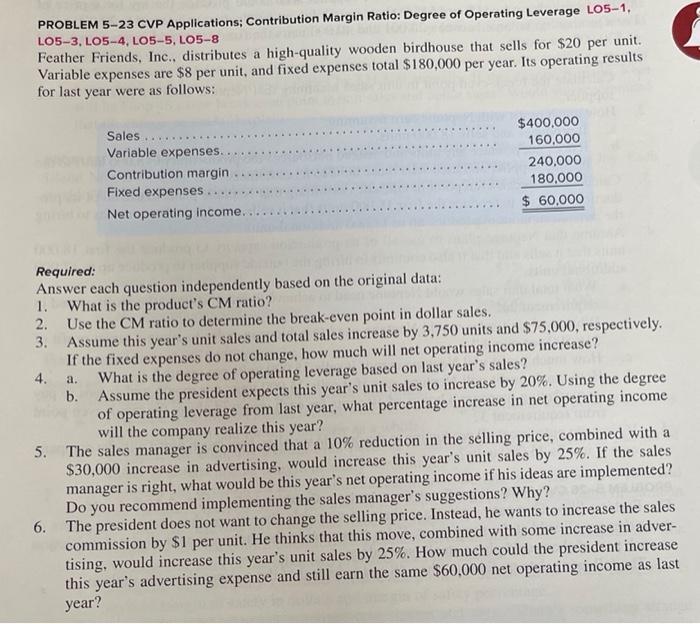Answered step by step
Verified Expert Solution
Question
1 Approved Answer
PROBLEM 5-23 CVP Applications: Contribution Margin Ratio: Degree of Operating Leverage L05-1. LO5-3, LO5-4, LO5-5, LO5-8 Feather Friends, Inc., distributes a high-quality wooden birdhouse that

Step by Step Solution
There are 3 Steps involved in it
Step: 1

Get Instant Access to Expert-Tailored Solutions
See step-by-step solutions with expert insights and AI powered tools for academic success
Step: 2

Step: 3

Ace Your Homework with AI
Get the answers you need in no time with our AI-driven, step-by-step assistance
Get Started


